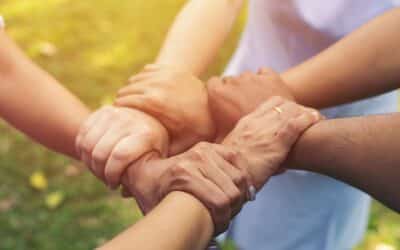Understanding Friendship Dynamics in Recovery
The journey through recovery brings significant changes to social relationships and friendships. Many individuals entering recovery ask themselves, “Can I maintain my friendships after addiction?” This question reflects a deeper understanding that relationships play a crucial role in the recovery process.
The Importance of Strong Friendships in Recovery
Strong friendships provide emotional support, accountability, and encouragement during challenging times. Research shows that individuals with robust social support systems have higher success rates in maintaining long-term sobriety. These connections offer a sense of belonging and understanding that can make the difference between relapse and sustained recovery.
The Impact of Substance Use Disorders on Friendships
Substance use disorders often create complex dynamics within social circles. Active addiction can strain relationships, break trust, and lead to isolation. Many friendships become centered around substance use, making it difficult to maintain these connections while pursuing recovery. Some friends might struggle to understand or support the recovery journey, while others may unconsciously enable old behaviors.
Revealing Authentic Friendships
The transformation during recovery often reveals which friendships were built on genuine connection and which were primarily sustained by shared substance use. This realization, while potentially painful, creates space for authentic relationships to flourish. Understanding these dynamics helps individuals make informed decisions about their social circles and build relationships that support their new lifestyle.
Recovery presents an opportunity to rediscover friendship in its truest form – connections based on mutual growth, understanding, and genuine care.
Re-evaluating Friendships Post-Addiction
The path to sobriety brings a critical need to assess existing friendships. This evaluation process requires honesty and self-awareness to identify relationships that support or hinder recovery.
Signs of Supportive Friends:
- Respect your decision to stay sober without pressure
- Willing to engage in alcohol-free activities
- Celebrate your recovery milestones
- Avoid discussing past substance use experiences
- Create safe spaces for your sobriety
Red Flags in Relationships:
- Continued substance use around you
- Dismissive attitudes toward your recovery
- Pressure to participate in triggering activities
- Resistance to accommodate your new lifestyle
Environmental triggers often lurk within familiar social circles. A friend’s home where you previously used substances, specific neighborhoods, or even certain music can spark cravings. These triggers require careful navigation and sometimes difficult decisions about maintaining certain friendships.
The process of re-evaluation might reveal the need to distance yourself from some relationships. This decision, while challenging, protects your recovery journey. Some friends might naturally drift away as your lifestyles diverge, while others may require direct communication about your needs and boundaries.
Remember that letting go of relationships that threaten your sobriety isn’t selfish – it’s self-preservation. Your recovery deserves protection through conscious choices about who remains in your inner circle.
It’s also important to understand that supporting someone through their addiction recovery is a delicate process. If you’re in a position where you want to help a friend struggling with addiction, consider reading this guide on helping someone with drug addiction.
Moreover, if you’re seeking more information on the nature of addiction itself, this article from McLean Hospital provides essential insights into understanding addiction.
Supportive Relationships and Their Importance in Recovery
A strong support network acts as a crucial lifeline during recovery. Research shows individuals with supportive relationships are twice as likely to maintain long-term sobriety compared to those who attempt recovery alone.
Supportive friends provide emotional stability, accountability, and understanding during challenging moments. They celebrate your victories, offer encouragement during difficult times, and create a safe space for vulnerability. These relationships help reduce stress, anxiety, and feelings of isolation – common triggers for relapse.
Connecting with Others Who Understand
Building a network of supportive relationships starts with connecting to people who understand your journey. Alcoholics Anonymous and Narcotics Anonymous meetings offer opportunities to meet others walking similar paths. These communities provide:
- Shared experiences and understanding
- Practical advice for navigating sobriety
- Judgment-free environments for authentic connections
- Opportunities for mentorship relationships
Nurturing Relationships Through Effort
Nurturing these relationships requires consistent effort and open communication. Regular check-ins, honest conversations about challenges, and participating in sober activities together strengthen these bonds. Remember to reciprocate support – being there for others reinforces your own recovery journey.
Expanding Your Network
Consider joining recovery-focused social groups, wellness classes, or volunteer organizations. These environments naturally attract individuals committed to personal growth and healthy living, creating opportunities for meaningful connections that align with your recovery goals.
Setting Healthy Boundaries with Friends During Recovery
Setting boundaries with friends during recovery requires clear communication and unwavering commitment to your sobriety journey. A direct conversation about your needs and expectations creates a foundation for healthy relationships that support your recovery.
Communicate Your Substance Use Boundaries
Start by expressing your boundaries regarding substance use. Be specific about situations that make you uncomfortable, such as being around alcohol or drugs at social gatherings. Let friends know if you need advance notice about events where substances might be present, allowing you to make informed decisions about attendance.
Manage Challenging Interactions Effectively
Some friends might struggle to understand your new lifestyle. Practice these effective strategies for managing challenging interactions:
- Use “I” statements to express your feelings without blame
- Set clear limits on social activities that could compromise your recovery
- Establish alternative meeting places away from bars or triggering environments
- Define consequences for boundary violations and stick to them
- Take breaks from relationships when needed to protect your wellbeing
Educate Friends About Your Recovery Goals
Remember that true friends will respect your boundaries, even if they don’t fully understand them. Those who consistently disregard your needs might need to take a step back from your life during this crucial time.
Consider sharing your recovery goals with trusted friends. This transparency helps them understand your boundaries aren’t personal restrictions but necessary steps for maintaining your sobriety.
Creating a Sober Environment: Activities and Spaces that Support Recovery
Creating an environment that supports your sobriety opens up exciting possibilities for meaningful social connections. Your home can become a sanctuary for sober gatherings by hosting game nights, cooking classes, or movie marathons. These activities shift the focus from substances to genuine interactions and shared experiences.
Outdoor Adventures
Outdoor adventures present natural opportunities for substance-free socializing. Here are some activities you can consider:
- Rock climbing
- Hiking groups
- Weekend camping trips
These activities combine physical activity with social connection, making them perfect for recovery.
Sports and Fitness
Sports leagues and fitness classes build camaraderie through shared goals and healthy competition. Joining a local sports team or participating in group workout sessions can help you bond with others while staying active.
Creative Pursuits
Creative pursuits offer fulfilling alternatives to traditional social scenes. Here are some ideas:
- Art workshops
- Music lessons
- DIY craft sessions
These activities engage both mind and hands while fostering new friendships.
Intellectual Conversations
Book clubs and discussion groups stimulate intellectual conversation in substance-free settings. Surrounding yourself with like-minded individuals who enjoy thought-provoking discussions can be a great way to connect without relying on substances.
Community Events
Local community centers and recreation facilities often host alcohol-free events like dance classes, cooking workshops, or cultural celebrations. These venues provide structured environments where you can meet others who share your interests without the pressure of substance use.
Virtual Connections
Virtual spaces also support recovery through online gaming communities, digital book clubs, or remote movie watching parties. These platforms allow you to maintain social connections from the comfort of your own space while avoiding potential triggers.
Personalizing Your Environment
Remember to personalize your environment by removing items that might trigger cravings and replacing them with tools that support your recovery journey – meditation cushions, exercise equipment, or art supplies can transform your space into one that nurtures growth and healing.
Making New Friends in Recovery: Sober Groups and Supportive Social Networks
Building new friendships during recovery opens doors to meaningful connections with people who understand and support your journey. Group therapy sessions create safe spaces to meet others facing similar challenges, fostering natural bonds through shared experiences and mutual understanding.
Local Recovery Centers
Local recovery centers often host social events, workshops, and support groups designed specifically for individuals in recovery. These gatherings provide opportunities to connect with others while engaging in substance-free activities. Many participants find lasting friendships through these structured environments. Furthermore, these centers often provide essential resources and information about recovery processes, such as those outlined in this Samhsa guide, which can be beneficial during your journey.
Online Platforms
Social media platforms and mobile apps dedicated to sober living help bridge geographical gaps, connecting you with a broader recovery community. Apps like Sober Grid and MeetUp feature recovery-focused groups and events in your area.
Religious or Spiritual Communities
Religious or spiritual communities welcome individuals in recovery, offering both emotional support and social connections. Many organize regular gatherings, volunteer opportunities, and social activities that align with sober living.
Fitness Communities
Fitness communities, particularly those centered around yoga, meditation, or outdoor activities, attract health-conscious individuals who often embrace sober lifestyles. These spaces naturally facilitate friendships based on shared interests in physical and mental wellbeing.
Creative and Hobby Groups
Recovery-focused book clubs, art classes, or hobby groups combine personal growth with social interaction. These environments encourage authentic connections while developing new skills and interests alongside others committed to sober living.
Seeking Professional Help? We’re Here to Support You
Your journey to maintaining sobriety while navigating friendships can feel overwhelming at times. At Resolute Recovery, we understand these challenges and provide specialized support to help you build lasting relationships while staying committed to your recovery goals.
Our experienced team offers personalized guidance through:
- Individual counseling focused on relationship building
- Group therapy sessions to practice social skills
- Family therapy to strengthen support systems
- Practical strategies for maintaining boundaries
We believe everyone deserves a strong support network during recovery. If you’re struggling with friendship dynamics or need additional support in your sobriety journey, reach out to us today. Our compassionate team is ready to help you create meaningful connections while protecting your recovery progress.
Ready to take the next step? Contact us to learn more about our comprehensive recovery support services.
However, if you find yourself in a situation where a loved one has relapsed, it’s crucial to know that there are steps you can take to support them. Our resources provide practical steps and guidance for helping a loved one navigate their way back to recovery after a relapse.




